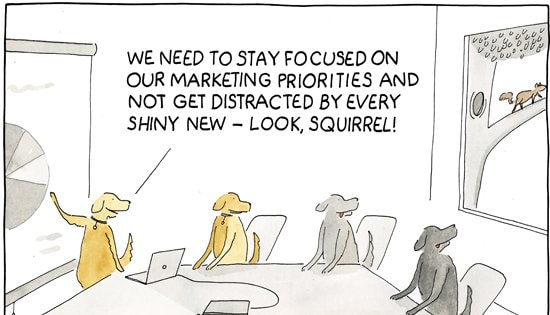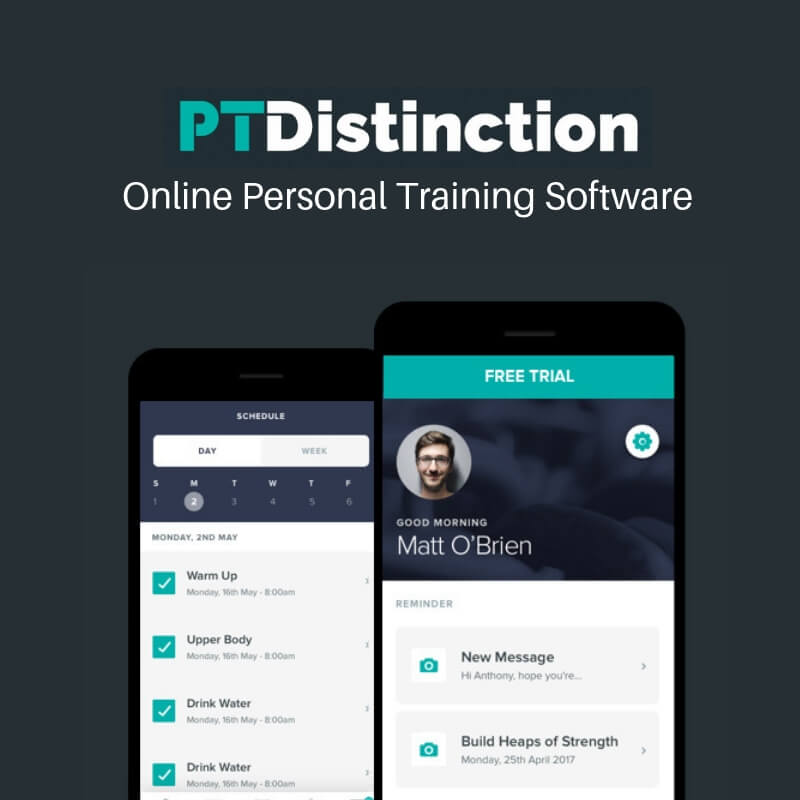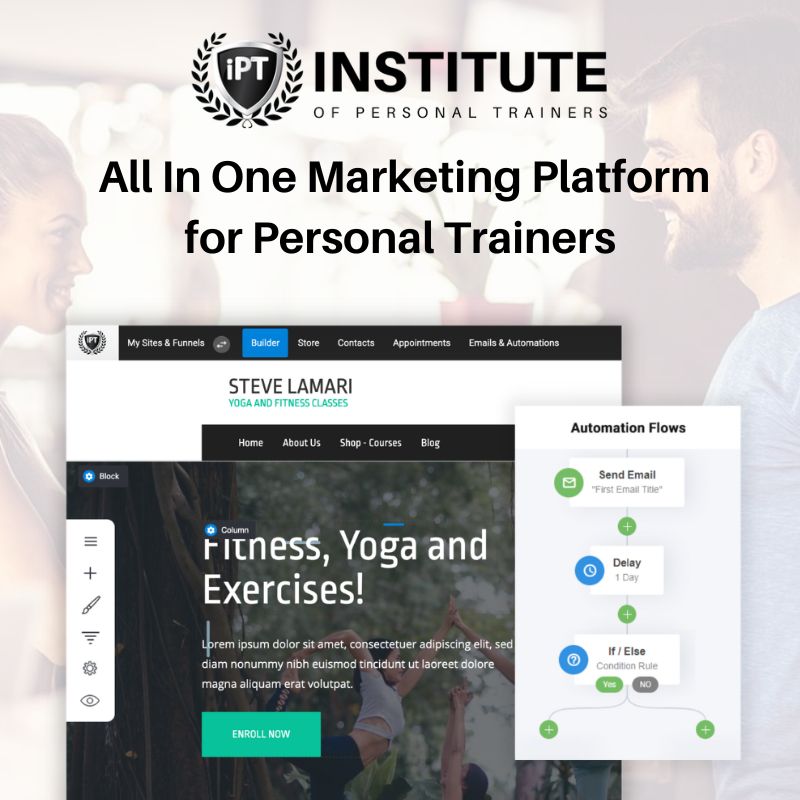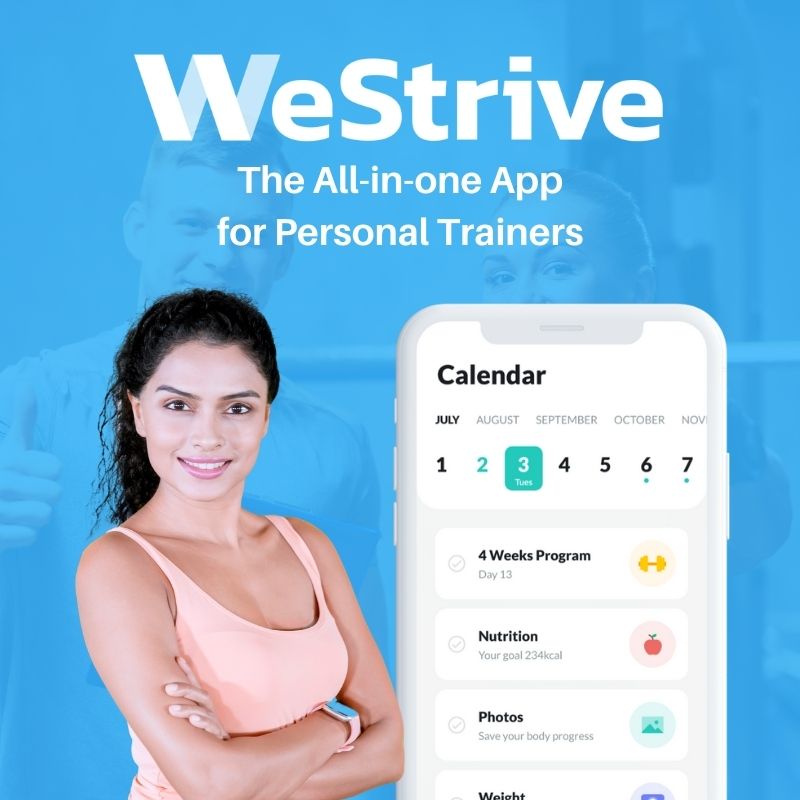Are you on the lookout for a fitness business mentor to help you improve your business systems, gain momentum and dominate the industry?
It seems every PT is on the lookout for a mentor right now and there’s such a high demand for them that literally any one who knows how to make a 15 minute sales call is becoming one. Unfortunately, a lot of personal trainers are getting ripped off.
I’ve heard horror stories about PT’s who lost out on a few hundred dollars, others have had to remortgage their house!
So I'll just come out and say it. The problem with dodgy fitness business mentors is pretty serious. Lives are getting ruined. So in this post, I’m going to talk about some of the best ways to spot a dodgy mentor.
I’ll be speaking in pretty general terms because legitimate, ethical companies also occasionally use the same strategies to spread their message and obtain new clients. But with this little extra insight, your ingenuity and instinct, you’ll be able to avoid being ripped off by a dodgy mentor. Let’s begin.
1. Insane Results in a Short Space of Time
When I asked the trusty Facebook Group members how they'd spot a dodgy mentor, 'insane results in a short space of time' was a pretty popular answer.
You would be surprised at how many PT's, especially newer PT's, fall for these kinds of promises. Even more so when they're backed up with screenshots of bank statements or conversations for proof.
After all, a lot of PT's get in to the business because they think they can make a lot of money doing something they love...training clients. Only to realise you have to do a LOT of other things you don't understand fully just to be able to obtain a client in the first place.
Things like being a business owner, marketing, sales and accounting.
Talk about frustrating!
You would be surprised at how many PT's, especially newer PT's, fall for these kinds of promises. Even more so when they're backed up with screenshots of bank statements or conversations for proof.
After all, a lot of PT's get in to the business because they think they can make a lot of money doing something they love...training clients. Only to realise you have to do a LOT of other things you don't understand fully just to be able to obtain a client in the first place.
Things like being a business owner, marketing, sales and accounting.
Talk about frustrating!
This is where the irresistible offer of quick cash in a short period of time starts to look sweeter and sweeter. But in reality, it's actually very easy to score a big sale in a short amount of time.
However, the money you earn in that brief moment is still owed to the client until you live up to your end of the 12 week programme you promised.
Even if a mentor does live up to their insane promise of results, these kinds of sales aren't exactly in the best interests of your business in the long term. More about that in point 6.
2. Long Facebook Posts
There’s absolutely nothing unethical about a long Facebook post. Sometimes you’ve got a lot to get off of your chest and that’s OK.
But once you get over a certain word count, you're telling people how they should run their business, mention the words "six figures" and it’s happening every day from a personal profile, you're beginning to look suspicious.
Plus, that long Facebook post is so long it should be a blog post and a good marketer/business owner would know that.
Good business marketers know how to utilise content on all mediums for maximum effect and while Facebook is an amazing platform, your personal Facebook profile shouldn’t be used over and over for exceptionally long, business related Facebook posts.
Excessive use of long form copy on a personal Facebook page says to me:
It’s cool if you don’t have a blog, if you occasionally use your personal Facebook profile for business and if you post something only once. That happens.
It’s just a strategy I see dodgy PT business mentors using often. Combine this with the others strategies below and they can begin to look even more suspicious.
But once you get over a certain word count, you're telling people how they should run their business, mention the words "six figures" and it’s happening every day from a personal profile, you're beginning to look suspicious.
Plus, that long Facebook post is so long it should be a blog post and a good marketer/business owner would know that.
Good business marketers know how to utilise content on all mediums for maximum effect and while Facebook is an amazing platform, your personal Facebook profile shouldn’t be used over and over for exceptionally long, business related Facebook posts.
Excessive use of long form copy on a personal Facebook page says to me:
- You don’t have a legitimate blog to put this on - most professional businesses have a blog (more about that in point 4)
- You're targeting people on your friends list - usually PT’s and not family
- You plan on using this piece of content only once - bad marketing
It’s cool if you don’t have a blog, if you occasionally use your personal Facebook profile for business and if you post something only once. That happens.
It’s just a strategy I see dodgy PT business mentors using often. Combine this with the others strategies below and they can begin to look even more suspicious.
3. Posting in Facebook Groups
Again, a post in a Facebook Group itself isn't unethical but when I see "gurus" using someone else's group to give unsolicited advice, it raises a red flag. Good businesses don't market this way.
When was the last time you saw an employee of a serious business post their helpful hints and tips in someones elses Facebook group? Being reactive and offering advice when it's asked is helpful. Pushing your beliefs on to others, not so much.
A Facebook group is a someone elses place of business. They worked hard to build a community of personal trainers. Sometimes with 20,000+ members.
So when I see someone post:
“[GIVE] Why Your Marketing Sucks and What to Do About it”
Or some other generic click bait title, followed by content that’s telling you your mindset is all wrong and you need to increase your prices, I breath a sigh of disappointment.
When was the last time you saw an employee of a serious business post their helpful hints and tips in someones elses Facebook group? Being reactive and offering advice when it's asked is helpful. Pushing your beliefs on to others, not so much.
A Facebook group is a someone elses place of business. They worked hard to build a community of personal trainers. Sometimes with 20,000+ members.
So when I see someone post:
“[GIVE] Why Your Marketing Sucks and What to Do About it”
Or some other generic click bait title, followed by content that’s telling you your mindset is all wrong and you need to increase your prices, I breath a sigh of disappointment.
This becomes especially relevant when combined with long Facebook posts that end in a free "strategy call".
Let's face it, if you invest your time in writing 1,000+ words for a Facebook group full of your target market, you’re not being a “nice” guy. You’re using that group as a way to advertise yourself without directly advertising and to me, that’s worse than just being upfront about it.
There will be exceptions to this where someone is genuinely trying to help but ironically, the ones who are actually trying to help always seem to be the newer PT’s sharing their experiences for the benefit of the group.
4. No Website
Every serious business that's been around for longer than 6 months has a website. Period.
You would not believe how many times I get added as a friend by the latest guru because I seem to be the “go to guy” for websites and they want to work together. Aka get access to my email list. Then when I ask for their website they say, like it’s a good thing, “I don’t need a website when I’m so good at [insert singular marketing strategy here]”.
Pffft. It makes my eyes roll so far back I can see my own angry brain.
You would not believe how many times I get added as a friend by the latest guru because I seem to be the “go to guy” for websites and they want to work together. Aka get access to my email list. Then when I ask for their website they say, like it’s a good thing, “I don’t need a website when I’m so good at [insert singular marketing strategy here]”.
Pffft. It makes my eyes roll so far back I can see my own angry brain.
A website is a base from which all other marketing assets sit. Sure, I’m biased because the websites I build literally feed my family and pay for diapers but it’s just true.
No website means no blog, no retargeting pixel, no services, no pricing and no testimonials. Good businesses simply wouldn't miss out on that. Especially if they claim to be an expert in marketing!
5. "Comment yes to get it"
Another strategy that’s not unethical, especially in a business context. But when I see this used over and over again on a personal page, combined with the context of the post... red flag.
Sometimes I genuinely don’t see how other people can’t see this. I read posts like:
“I just so happened to be in my old email marketing software and found the EXACT email that got me $1,000’s in clients! Comment yes if you want it!”
Wait, so you just happened to be in an email client that you no longer use, then you just happened to navigate through several steps within that email client to the exact email that got you $1,000’s in clients in 2010 and now you want to give that email away in exchange for a “yes”. Wow… so nice.
Give me a break!
Sometimes I genuinely don’t see how other people can’t see this. I read posts like:
“I just so happened to be in my old email marketing software and found the EXACT email that got me $1,000’s in clients! Comment yes if you want it!”
Wait, so you just happened to be in an email client that you no longer use, then you just happened to navigate through several steps within that email client to the exact email that got you $1,000’s in clients in 2010 and now you want to give that email away in exchange for a “yes”. Wow… so nice.
Give me a break!
If you’re that nice, just link to it… oh wait… you don’t have website.
Ok, then add it to the resources section on your… dammit… no website.
Dropbox? Google Drive?
If it’s that effective, build it in to some kind of strategy or system that incorporates a more diverse marketing approach. A single email on it's own is not a strategy, it's a shiny object Which leads be on to the next point.
6. Emphasis of One Strategy
When I see someone emphasizing a single strategy to get leads, it's a red flag. No one strategy is better than the other and all strategies should be used together for maximum effect.
My advice is always to: use your strengths to market your business until you’re so good at them that you can make enough money to outsource your weaknesses.
This concept seems to be lost on dodgy mentors who subscribe to a single method of gaining clients. Usually either an eCommerce marketing strategy from 2007 that is in no way relevant to personal trainer businesses today or the latest shiny marketing tactic.
My advice is always to: use your strengths to market your business until you’re so good at them that you can make enough money to outsource your weaknesses.
This concept seems to be lost on dodgy mentors who subscribe to a single method of gaining clients. Usually either an eCommerce marketing strategy from 2007 that is in no way relevant to personal trainer businesses today or the latest shiny marketing tactic.
I get it mentor, you’re good at Facebook ads and getting people on the phone to sell a 12 week program for $1,500. It looks really cool in Paypal and even better when you post a screenshot of the conversation you had with your PT client about the 5th sale on Facebook.
Personal Trainer: “I just made $7,500 this week” |
But now that trainer has his hands full for the next 12 weeks, no time to set up real long term business systems and now relies on you to help him generate more income for the following weeks of his life. For which you’ll take another lump sum in commission, I’m sure.
Strong business marketing is about positioning your business in front of potential clients at all stages of their buyer journey to build an audience.
When the client is thinking “I need to lose some weight after my baby”, you’re there with a blog titled “How to Lose Weight After Having Your Baby”.
When the client is thinking “I can’t do this on my own. Maybe I need a trainer”, you’re there with a lead magnet titled “How to Choose the Right Trainer In 10 Steps”.
When the client is thinking “I think I’ll hire a trainer but which one?”, you’re there with a comprehensive comparison chart.
This positioning of your business at every stage of the buyer journey ensures long term business stability and growth so that you can feed your family and buy diapers… until your babies have babies of their own who need diapers.
7. No Business of Their Own
This one was a great suggestion from the Facebook group. If your mentor has no business other than their mentoring business, that should raise some eyebrows.
Being good at business, especially in the fitness industry, requires the experience and up to date knowledge that only a current business owner would have from actually practicing business.
There may be some outliers but in general, a good fitness mentor will have had their own business, done pretty well with it and now they're passing on their experiences on to you.
In which case, their advice to you will be along the lines of long term, sustainable growth. Not quick sales.
Check for past and current businesses, some kind of record of success in those businesses and testimonials from current mentoring clients... on their website...
Being good at business, especially in the fitness industry, requires the experience and up to date knowledge that only a current business owner would have from actually practicing business.
There may be some outliers but in general, a good fitness mentor will have had their own business, done pretty well with it and now they're passing on their experiences on to you.
In which case, their advice to you will be along the lines of long term, sustainable growth. Not quick sales.
Check for past and current businesses, some kind of record of success in those businesses and testimonials from current mentoring clients... on their website...
8. The Time Sensitive Offer
Probably one of the most sucky tactics that really grinds my gears is the time sensitive offer. It's usually something a dodgy mentor would use on the phone and might go something like:
"If you sign up on the call today you can get this for $3,000. Once you hang up it goes back up to $6,000"
Or:
"I'll give you until Saturday to decide then the price goes up".
Now, time sensitive offers are a perfectly ethical way to get people to take action, especially when done right. In fact, I recommend them for products that need to be sold quickly, are sold in certain seasons or new versions come out regularly.
But using them as a way to force people to pay you there and then is just not cool.
Either your services are worth $6,000 and you're discounting them massively despite the fact that the actual service doesn't change. In which case, you suck at business.
Or your services are worth $3,000 and you're doubling the price to force a desperate personal trainer in to a sale. In which case, you suck at being a person.
You can argue that given too long to ponder, people will back out and you won't be able to help them, but you should have other business systems in place to help them where they are currently at... like free content... on your website...
"If you sign up on the call today you can get this for $3,000. Once you hang up it goes back up to $6,000"
Or:
"I'll give you until Saturday to decide then the price goes up".
Now, time sensitive offers are a perfectly ethical way to get people to take action, especially when done right. In fact, I recommend them for products that need to be sold quickly, are sold in certain seasons or new versions come out regularly.
But using them as a way to force people to pay you there and then is just not cool.
Either your services are worth $6,000 and you're discounting them massively despite the fact that the actual service doesn't change. In which case, you suck at business.
Or your services are worth $3,000 and you're doubling the price to force a desperate personal trainer in to a sale. In which case, you suck at being a person.
You can argue that given too long to ponder, people will back out and you won't be able to help them, but you should have other business systems in place to help them where they are currently at... like free content... on your website...
How to Spot a Dodgy Fitness Business Mentor
There are loads of really great business leaders and thinkers out there, but what I’ve learned from personal experience and listening to others is that most of the best business mentors don’t come in the form of an ex personal trainer who reached full capacity and didn't know how to scale.
They’re usually people you just listen to, who you follow, perhaps have one or two conversations with and relate to on a personal and business level.
They don’t ask for your money or tell you which way is right or wrong, just what worked for them.
With that said, I’m certain there are types out there that would benefit from giving their money to someone. It helps with accountability and the sense of urgency that’s often needed to get stuff done.
If that sounds like you, just be weary of some of the points above. Think about the bigger picture of your business and make decisions slowly and with our brain, not your emotions.
They’re usually people you just listen to, who you follow, perhaps have one or two conversations with and relate to on a personal and business level.
They don’t ask for your money or tell you which way is right or wrong, just what worked for them.
With that said, I’m certain there are types out there that would benefit from giving their money to someone. It helps with accountability and the sense of urgency that’s often needed to get stuff done.
If that sounds like you, just be weary of some of the points above. Think about the bigger picture of your business and make decisions slowly and with our brain, not your emotions.













